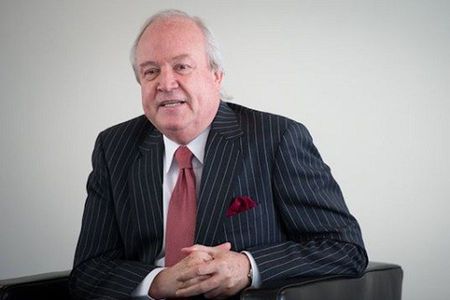Heine: “India should take a page from its own history and embrace Active Non-Alignment as its foreign policy”
In an op-ed for The Wire India, Ambassador Jorge Heine examined India’s position in global politics as the country balances its clout in the Global South and its diplomatic relationship with the West. Titled “India Is Between a Rising South and a Fractured West,” the article dives deep into the evolving circumstances, which has resulted into the West’s decline and the Global South’s rise, significantly tipping the power scales.

“In 1945, the United States represented 50% of global GDP…,” said Heine. “By 1970, this had fallen to 25%. But the interesting thing is that this 25%, one quarter of the world economy, has held steady for the past half century, and today still stands at 25%. In that sense, there is no “US decline” per se, which makes the claims about this order harming the US especially absurd. There is, however, another angle from which one could argue that there is a broader “Western decline”: if we look at the six other members of the G7, apart from the US, we see that their share of global GDP has fallen from 42% in 1991 to 18% in 2023. And of course, we have the rise of China that now represents about 19% of global GDP, and since 2014 has overtaken the US economy if the latter is measured in PPP terms.”
On the other hand, the Global South is home to the highest number of billionaires. Likewise, with 60% of the world population in Asia, East Asia is one of the fastest growing regions in the world. India particularly stands out with its high population and consistent growth in the last three decades, overtaking Japan as the world’s fourth largest economy. While India has been always been a staunch ally of the United States, it now finds itself in a precarious position diplomatically due to Washington’s recent actions, including steep tariffs, eye-watering fees on H-1B work visas, and Trump’s claim of de-escalating a full-blown conflict with Pakistan.
Heine recommends India should focus on its relationship with the States and the West regardless of the growing disagreements with the region.
“Another alternative which has been set forth by Stewart Patrick, a scholar at the Carnegie Endowment for International Peace, is that, now that the US has given up on the Liberal International Order, the time has come for India and other middle powers in the South to join forces with European democracies to revive it,” said Heine.
While joining forces with Europe might be a potential direction, Heine deems it to be a nonstarter as the continent isn’t exactly touted to be “the future” if emerging data is to be considered.
“Thus, India should take a page from its own history and embrace active Non-Alignment as its foreign policy,” said Heine. “As I argue in my new book, The Non-Aligned World , the best alternative for countries of the Global South, and for India as leader of the developing world, to deal with the uncertainties of this highly fluid situation is not to side with any of the Great Powers that are competing with each other, but to put your own country’s interests front and center, and act accordingly.”
To read Heine’s full article, click here.
A former research professor at the Frederick S. Pardee School of Global Studies, Jorge Heine is a diplomat, international relations scholar, and lawyer. He has served as an ambassador of Chile to China, India, and South Africa. Heine has written over fifteen books, including The Non-Aligned World: Striking Out in an Era of Great Power Competition (2025), which provides insights on how the Global South can navigate the changing diplomatic landscape amid the U.S.-China rivalry.